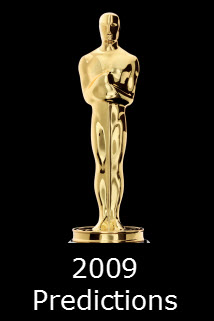American Hustle (2013)


Content by Tony Macklin. Originally published on December 15, 2013 @ tonymacklin.net.
American Hustle is Saturday Night Bluster.
Where's Tony Manero when we need him?
Set in the late 1970s - somewhat based on Abscam - American Hustle is the long con. It's 2 1/2 hours long.
American Hustle spirals, stumbles, flounders, and struts. It's strobe cinema.
A gifted, star-filled cast and a crafty director try to hold it together with varying results.
American Hustle is the story of scammers and scams. Two con artists - Irving (Christian Bale) and Sydney (Amy Adams) - are caught by volatile FBI agent Richie DiMaso (Bradley Cooper). He has them set up a sting to catch New Jersey mayor Carmine Polito (Jeremy Renner) bribing office holders in order to enable Atlantic City to be richly refurbished.
Then the scam hits the fan. And so does the acting.
The movie is a disco of over-the-top acting. As always, Christian Bale gets thoroughly into his character as the con man whose mantra is "Do it from the feet up." Amy Adams is sensual and striking as his partner, who assumes an English accent for manipulative effect. Bradley Cooper is edgy as the anxiety-driven FBI agent, who is committed to success.
Jennifer Lawrence, Irving's brash wife, is ostentatious, especially in a scene where she dusts furiously while fiercely singing along to "Live and Let Die." She's no Tom Cruise. Jeremy Renner gives the mayor heart and convincing naivete.
The one actor who brings gravitas to the superficiality is Robert De Niro, as the mobster from Florida. In a short period of time he reminds us of the De Niro of the past with his penetrating stare and presence. He's a welcome jolt of credibility.
Director David O. Russell built up a lot of good will with last year's Silver Linings Playbook. This time out, he may go in debt. He moves from Philly to Jersey for the setting of his film. Not exactly an auspicious move. Russell and writer Eric Singer create a world that shakes rather than rolls.
At the very beginning we find out the major theme of the film. Irving is carefully arranging and rearranging his elaborate comb over. After a long take, we see his image has been in a mirror. Then the camera reveals the actual Irving standing before it. That establishes man and image. Duplicity will abound.
The characters in American Hustle are devious and duplicitous. They aren't comfortable in their own shifting identities. They live in a world of polyester and facial hair. They have comb over, curls, and pompadours. Their clothes shine, but their characters lack luster.
American Hustle could be a commercial for Lenscrafters, but they weren't founded until 1983, so instead it could be a commercial for Versace, which was founded in 1978, the year when the film begins. One of the major symbols in the film is eyeglasses. Almost all the players wear them, but putting on glasses and fiddling with them is not characterization.
Ironically, in American Hustle those who wear glasses don't see clearly. And, sunglasses are rampant, shading and concealing the eyes. It's a myopic world.
In American Hustle, Russell seems like a lightweight Scorsese, sparring instead of punching.
The payoff at the end of the film skimps. The final line is "Survival is a story that never ends." Please end it.
The Sting (1973) had a satisfying payoff. American Hustle is less successful.
Loyalty is betrayed and there's a pang of remorse.
American Hustle has a few pangs, but it's mostly spangles.


